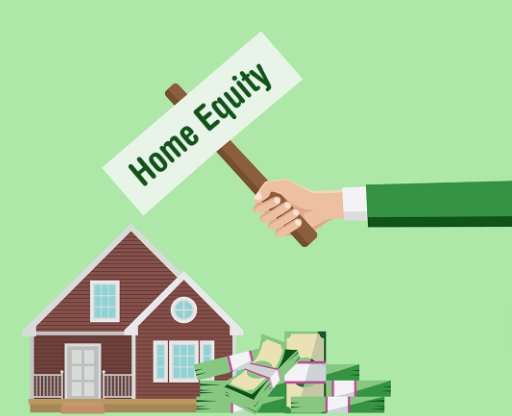Housing inequity can result in a variety of outcomes and manifest itself in many ways.
According to our research, Detroit residents who deal with growing rents, subpar living conditions, and structural obstacles to secure and affordable housing are more likely to have ill health.
We do research to better understand the relationship between health and housing disparities in order to influence national, state, and local policy. Our main concern is the relationship between health, racial, economic, and age equity and multidisciplinary housing research.
Also read-Research Indicates Men Should Take More Steps To Avoid Cancer

Housing inequity
Living in cramped or subpar conditions, needing to move frequently, or having to spend the majority of household income on housing are just a few examples of the various ways that housing instability manifests itself. An increased chance of homelessness, eviction, poor mental health, and even physical illness can result from these pressures.
According to American Community Survey data, half of Detroit’s population consists of renters, with a median household income of $26,704, which is over $13,000 less than Michigan’s median.
Additionally, we discovered that 60% of Detroit’s tenants are cost-burdened, which means they pay more than 30% of their income on housing-related expenses like utilities and rent.

Housing inequity
A Tragedy of Inequitable Housing Policies
These problems didn’t appear out of nowhere. Redlining’s history affects the racial housing disparities that exist in Detroit today. The practice of banks and insurers restricting or refusing loans, mortgages, and insurance in black communities is known as “redlining,” and it is supported by the federal government.
The results took time to manifest. As of 2019, regions that were formerly classified as redlined had approximately 30% lower rates of homeownership and a $60,000 disparity in median household income when compared to largely white neighborhoods that had been given better prospects starting almost a century earlier.
Beyond the financial consequences, studies reveal that Detroit’s redlining policy is linked to citizens’ self-reported bad health, heart disease, and vision impairment.

Housing inequity
Bad Health Results from Tax Foreclosure
Even now, discriminatory housing policies persist, frequently manifesting as evictions and foreclosures.
Detroit has had one of the highest rates of tax foreclosures in the nation during the last 20 years.
Approximately 6,408 owner-occupied houses were repossessed by banks in 2015, during the height of the foreclosure crisis, uprooting those Detroiters and increasing their risk of mental health issues.
As a result, there have been more auction sales to investors and speculators, who typically evict more tenants and let their homes deteriorate than other kinds of landlords.

Housing inequity
Eviction, Substandard Housing, and Health
Prior to COVID-19, Detroit had over 30,000 eviction filings per year.
Evictions have returned to pre-pandemic levels following a few years of reprieve brought on by housing policies implemented during the pandemic. Eviction cases against almost 20,000 Detroit residents were filed in 2023.
Studies link eviction to a number of detrimental effects on one’s physical and mental well-being.
Despite efforts by the city to enact rental legislation requiring landlords to register and acquire a certification of compliance with Detroit’s rental ordinance, even the residents of Detroit who are not in danger of eviction frequently pay rising rental fees for subpar property.
Studies reveal that nine out of ten eviction cases during the pandemic period involved properties that did not adhere to municipal health and safety regulations, which include those governing lead dangers. In addition, a large portion of the housing stock is aging and losing value, and enforcement of compliance measures is lax.
There is nowhere for those people who are evicted. 1,691 Detroiters were homeless in January 2023, which raised their risk of mental health issues and illness.

Housing inequity
Successful Policies
There’s some positive information. Since the tax foreclosure crisis peaked, Detroit has seen a considerable decline in the number of tax foreclosures.
We partially ascribed this to the Wayne County Treasurer’s Office’s pandemic-era tax foreclosure moratorium, which was lifted in 2023. Additionally, the county is in charge of the Michigan Homeowner Assistance Fund and initiatives like the Detroit Tax Relief Fund and Pay As You Stay, which have assisted residents in paying off their tax burden.
In an attempt to avoid tax delinquency, certain low-income homeowners have been exempted from paying property taxes under programs like Detroit’s Homeowners Property Exemption program.
Our research reveals that few qualifying households actually use these services, despite efforts to increase public knowledge of them. They run the risk of experiencing foreclosure and even being forced to move.

Housing inequity
New Paths for Policy
Resilience and unwavering lobbying on the part of Detroiters have resulted in major victories for housing justice, assisting in the integration of neighborhood issues into city policy.
The right to legal representation for qualifying low-income Detroiters facing eviction was successfully fought for by locals in 2022.
To cut down on eviction filings, the city can investigate eviction diversion and mediation strategies, following the example set by other American cities like Philadelphia.
It is also necessary to make more focused investments in black homeownership in order to promote stability and long-term living.
Housing inequity

Housing inequity
Also read: The Federal WIC Program Could Improve Women’s And Newborns’ Pregnancy Outcomes
images source: Google
Disclaimer: The opinions and suggestions expressed in this article are solely those of the individual analysts. These are not the opinions of HNN. For more, please consult with your doctor




































